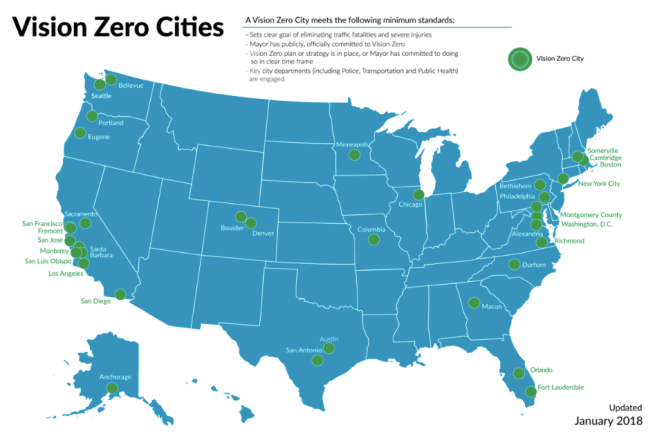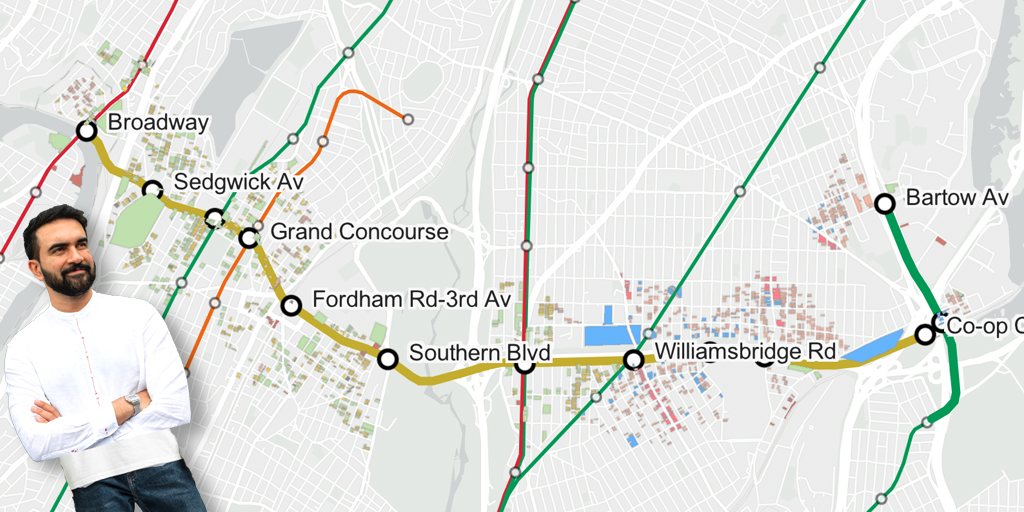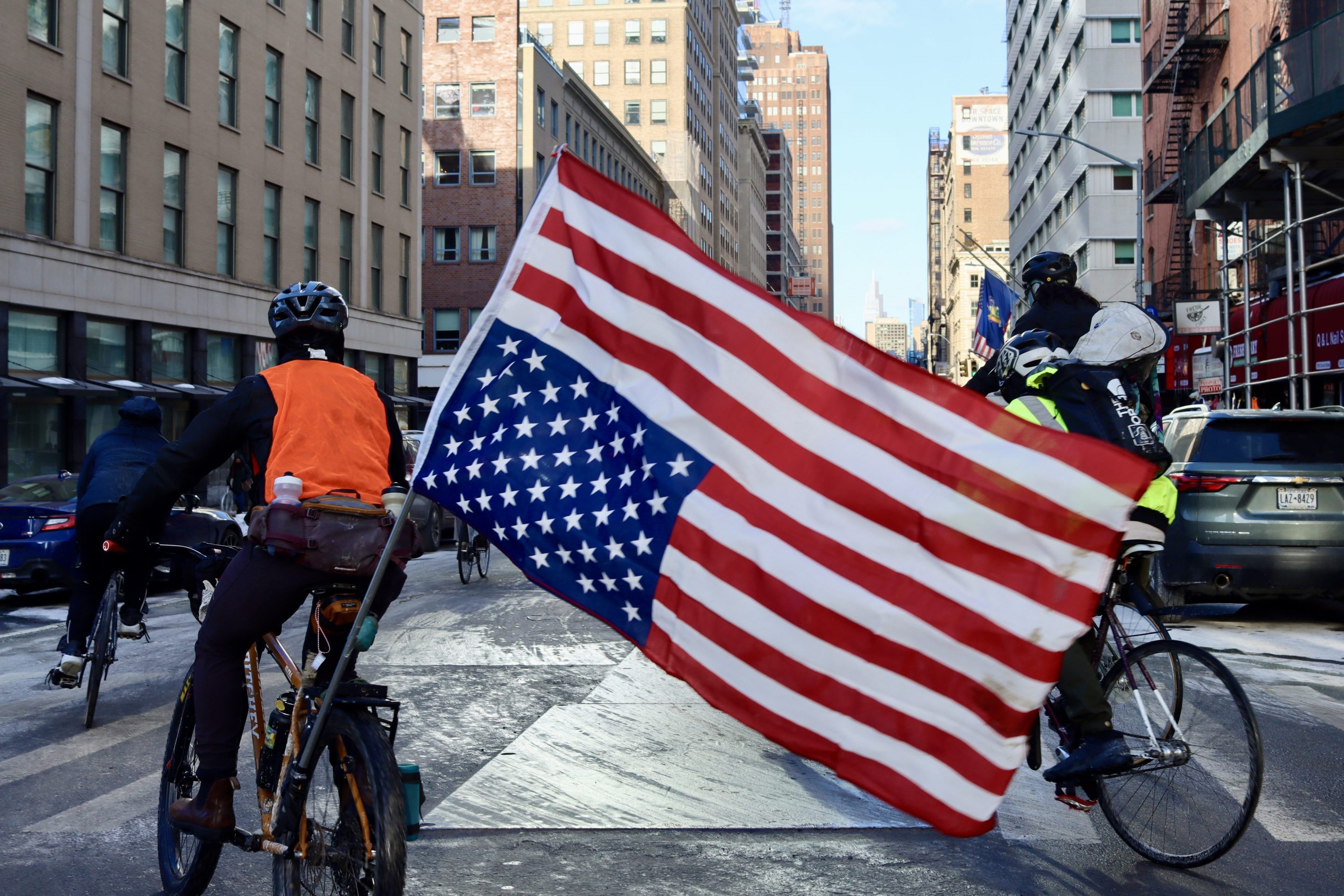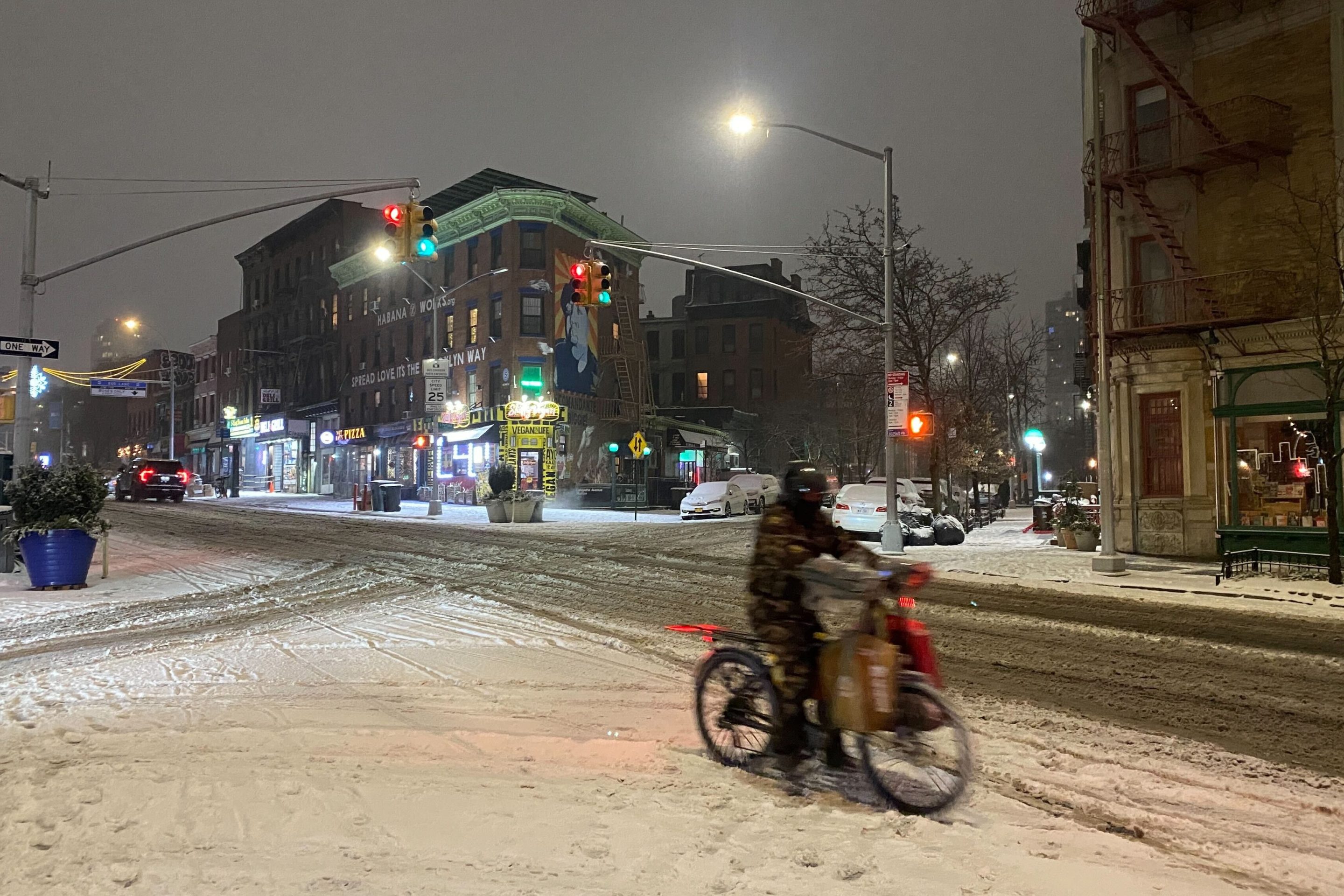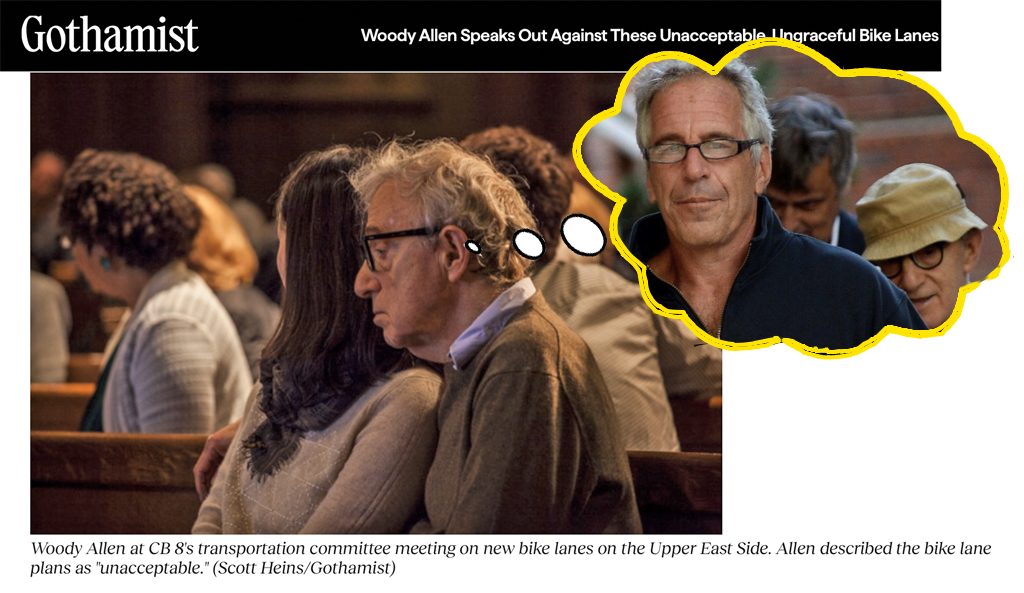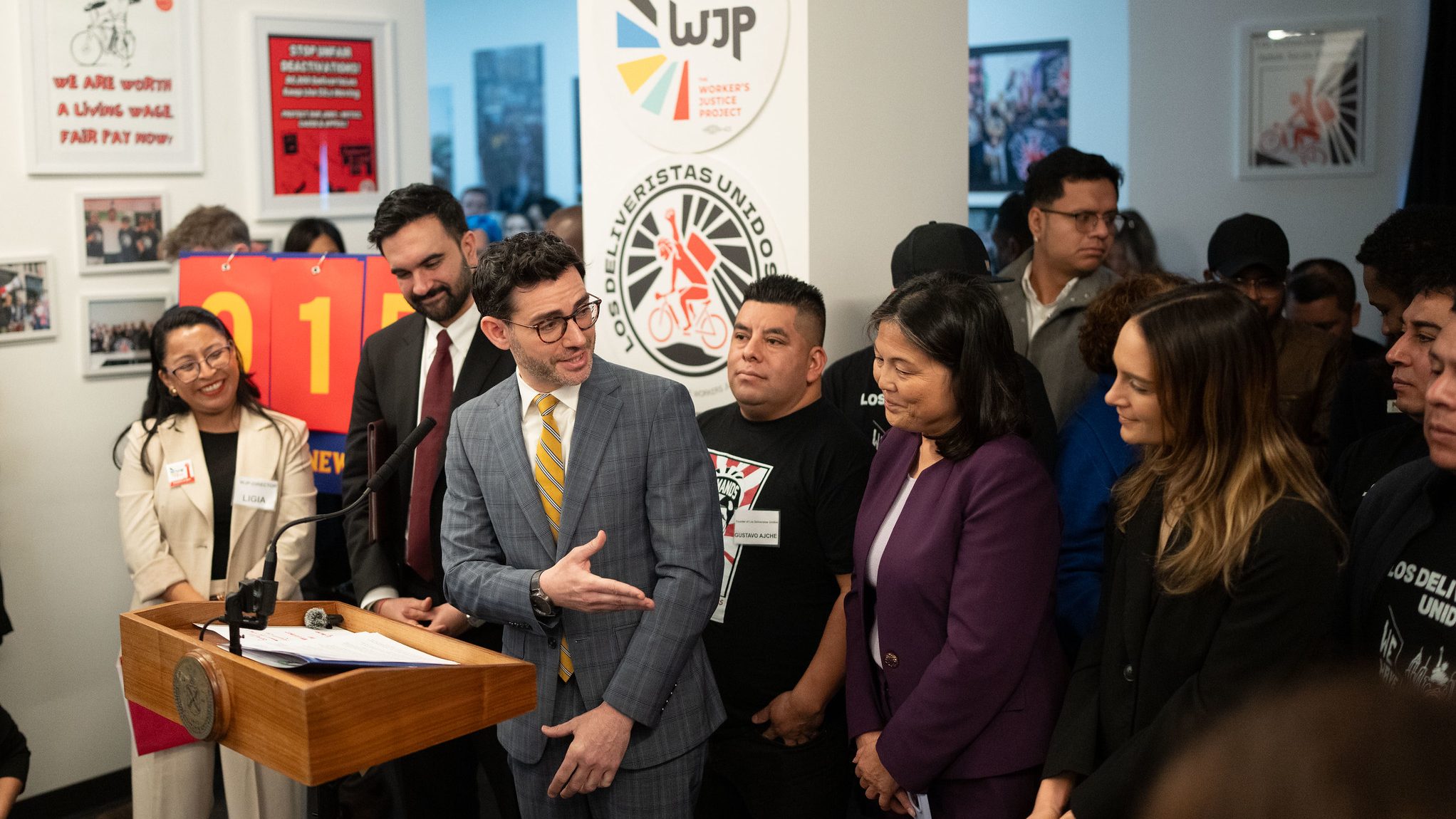It's too early to tell whether Vision Zero will ever reach its the goal implied its name, but there's one way to give it a good chance: getting drivers to slow down.
That's emerging as a crucial goal of the Vision Zero Network, a national group that help cities implement safer street practices. The non-profit organization, which gets funding from Kaiser Permanente and restaurateur Bill Russell-Shapiro, is ramping up for a new speed-focused campaign, having just hired Veronica Vanterpool, former director of the Tri-State Transportation Campaign in New York, as associate director.
Vanterpool and Director Leah Shahum talked with StreetsblogUSA about the Vision Zero Network's Vision Zero vision going forward.
Streetsblog: So you've made a big new hire. What's next for the organization?
Leah Shahum: We’ll continue to promote Vision Zero and defend against those places where they’re treating it like a tag line or a PR campaign. To actually make progress or commit to Vision Zero, it will really take a transformative shift in how your city is planning mobility.
We're also going to be focusing more on is speed. We need to be paying as much attention to the issue of managing speed as many communities have done around drunk driving. The level of change in government, thanks to groups like MADD, there’s been a sea change in how people think about drunk driving. We need to have that same sort of focus level on managing speeds.
We're going to try to help cities actually move forward with strategies that do reduce speeds in their communities, whether that's lower speed limits, more automated enforcement or engineering changes.
Another big focus is equity. There are some positives in the sense that Vision Zero is very data driven it helps really highlight inequities in our transportation system and beyond. Not all these communities have been treated equity. But there are real worries about the role of enforcement. How do we help Vision Zero not become way to increase the opportunity for policing in certain communities? That is a big super important piece we want to help cities get better on.
We're also getting ready to release a list of standards for Vision Zero in the next two months. How do we help people understand what Vision Zero entail? This will be the first time there will be guidelines that explain.
Can you provide an example of what that would entail?
Shahum: One of them is: System designers and decision makers advancing cross-cutting measure to reduce car dependence improve transit and promote walking and biking. This is an area where we have not been as strong as we could. Some of the strongest predictors of traffic fatalities are vehicle miles traveled. It’s not just about making trips safer. Cities also need to be serious about growing the non-auto trips.
London's new Vision Zero plan is the best I’ve seen. They're saying "Yes, we want to make current driving trips safer. But if we’re gonna get to zero deaths, we need to be reducing the number of car trips. That means we need to be growing other kinds of trips." So you can have carrots and sticks. Build out a great bike system, for example. Then there are sticks: congestion pricing, smart parking prices.
I know it's very early. And it's sort of hard to tell. Do you think Vision Zero is working?
Shahum: It is early. The longest running two Vision Zero cities are 4.5 years in. I would say it’s very encouraging that are two longest running cities, New York and San Francisco, are seeing notable improvements [though] the rest of the country has trended terribly.
Veronica Vanterpool: In New York City there has been a significant reduction in traffic fatalities, they've decreased 28 percent And there's been 45-percent decrease in pedestrian fatalities.
Shahum: We've looked at the numbers for the first half of 2018 and it’s still trending down. Those two cities that have invested the most time and energy and political will into this different approach are seeing results.
What about smaller cities with fewer resources? I live in Cleveland. Do you think smaller cities with less experience on these issues can succeed too?
Shahum: It’s all scalable. For a much bigger city, it’s gonna take more. For a Cleveland or a Durham or we have 100,000-people towns in California that are committed to Vision Zero, you can be doing the same or very similar strategies, but they can be smaller scale.
In some of these very small cities, they have this one road or two roads that were state highways. If they just fix that one or two streets, that would be light years ahead. It would be dramatic improvement.
Vanterpool: The goal of achieving zero fatalities, it isn’t just achievable through funding. There are policy changes that are needed. In New York City, we lowered the speed limit.
Funding is necessary because we want to make engineering changes to our roads. But policy change is also needed.
A lot of communities don’t realize how fungible a lot of federal and state transportation are as well. How they have traditionally have used those funds are for road improvements. Most cities have not taking advantage of the possibility for using the funds to add bike or pedestrian infrastructure. Once they do, they start to see opportunities within their existing budgets. This is how communities across the U.S have made these changes.
Sharing those examples is what the Vision Zero Network has done. Communities can learn from one another.
